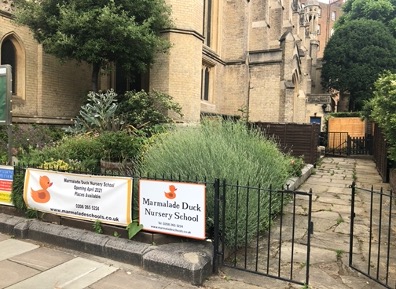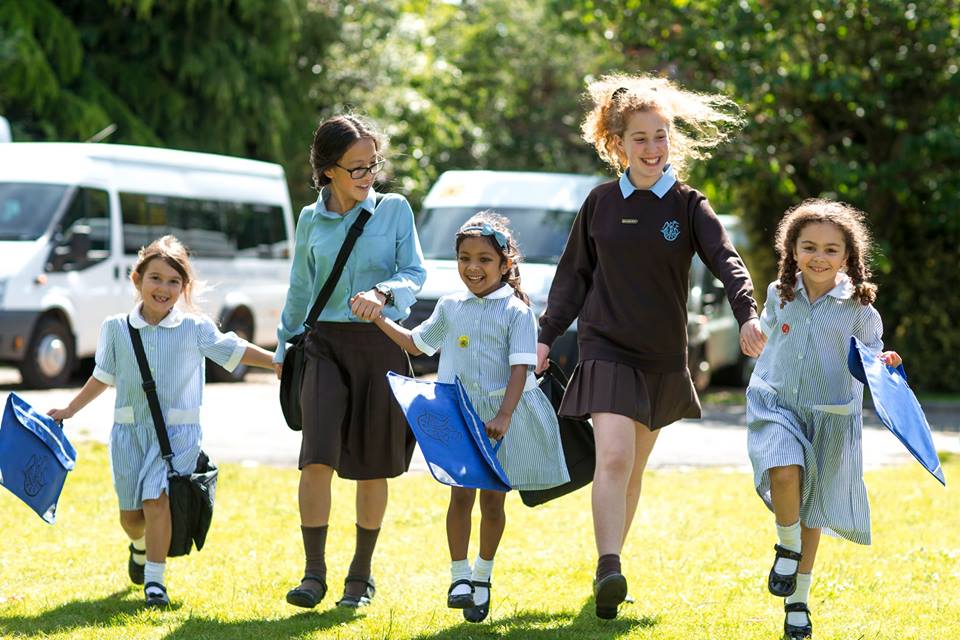This month our spot light is on Bute House as the enormously charismatic Head, Helen Lowe’s headship comes to an end. Ms Sian Bradshaw (previously Head of Ewell Castle Prep School and deputy head of Orchard House) will be taking over and we are pleased to hear that she has no plans to radically change the direction of the school. Located in Brook Green, west London, Bute House is well known as one of the highest attaining girl’s junior schools in London and an unofficial feeder for St Paul’s Girls.
Why we love Bute House
Having 20 of years experience between us working in education, in both a teaching and consultancy capacity, Sabine and I are incredibly conscious of the enormous pressure that primary aged children are put under in the years leading up to the 11 plus. This pressure can come from several sources including the exam itself, parents, peers, and the school they attend. While many schools acknowledge the damage that constant testing and ranking of children can have, few have really been able to commit to creating an environment that is both stimulating, dynamic and noncomparative. Bute House is well and truly a non-competitive academic environment.
What does a non-competitive environment mean?
The school has strict rules on sharing attainment information and this does mean that the school is not for everyone. Children do not take exams until Year 5 and parents are not given the results of cognitive ability tests or behind the scenes assessment until the summer term. Working out which set your daughter is in is also not an option as they do not stream the children believing that it is up to the teacher to cater for a mixed ability class. This may not seem like an issue in Reception however, as the 11+ draws near, many parents do struggle to wait until this point in the year before they can really begin planning secondary school options. In addition to this, there are no senior leadership positions such as prefects or head girl so before deciding on Bute House as an option parents need to decide this is the system for them. Our opinion is that having watched endless children struggle with their own self-worth as a result of continuous class examination this system sounds like heaven and a space where girls really can 'run their own best race.'
Entrance
At 4+ it is by ballot - so called 'golden ticket’ which is drawn 2 years before entrance and can offer a maximum of 22 places. The good news is that siblings have guaranteed places. At 7+ 200 girls sit the assessment for around 44 places. This year’s 7+ assessment was completed specifically by Atom Learning- no decision has yet been made on how it will be assessed but it will be based on the Year 2 curriculum and include some English and maths. One thing comes across loud and clear and that is the school’s take on tutoring; they repeatedly tell parents not to tutor. In the most recent open morning Bute House emphasized that they are not looking for girls who can already do lots and are working above their expected stage. They are looking for girls who are curious, keen to have a go, not worried about making a mistake. Bute House girls are those who ask questions, have energy, a sense of humour (even a tiny bit of cheekiness) and are interested in learning and being taught.
Exit 2020
Always majority of girls moving onto St Paul’s Girls School with a good amount going onto other local favourites, Latymer and Godolphin and Latymer. For full results:
https://www.butehouse.co.uk/moving-on/senior-school-destination-trends.html
4, 7, 8 , and 11+ assessments during covid- what’s changed?
Read our most recent blog on changes to the assessment process during 2020 and 2021. Despite all the challenges this year, children we have assessed and worked with have gained places at UCS, Channing, Falkner House Girls, St Christopher’s, Highgate, North London Collegiate, Notting Hill and Ealing, ASL, DPL, Forest Hill, DUCKs, The Harrodian, St Paul’s Cathedral School, Ibstock Place, City of London Girls, Godolphin & Latymer, Francis Holland Sloane Square and Francis Holland Regent’s Park, Thomas’s, Wimbledon High, Hampton and Putney High. We congratulate them all!
SH Education services:
We offer teacher led assessments in preparation for the 3, 4, 7, 8, and 11+ assessments as well as occasional places into all primary year groups. Read more about our bespoke assessment packages developed to give parents/ carers or tutors the most thorough and constructive information, next steps and recommended acitivites and resources to support their child.
15% off all consultations when you refer a friend to us!


 We shared a visit to The Hall in Wimbledon which now takes boys and girls from 7-16 years old but will be expanding soon to include a sixth form as well. The school has recently moved into one location (17 The Downs, SW20) having previously been split into a junior and a senior school. Despite a relatively small facade The Hall boasts good facilities with an amazing amount of hidden space including a indoor basket ball court, art room, ICT suite, drama space, library and fantastic 9 acre playing fields and pavilion. The new head, Andrew Hammond, is extremely experienced and genuinely passionate about education beyond results. Behaviour is excellent and the school’s focus on each child feeling known and valued seems to have resulted in a very calm and happy environment.
We shared a visit to The Hall in Wimbledon which now takes boys and girls from 7-16 years old but will be expanding soon to include a sixth form as well. The school has recently moved into one location (17 The Downs, SW20) having previously been split into a junior and a senior school. Despite a relatively small facade The Hall boasts good facilities with an amazing amount of hidden space including a indoor basket ball court, art room, ICT suite, drama space, library and fantastic 9 acre playing fields and pavilion. The new head, Andrew Hammond, is extremely experienced and genuinely passionate about education beyond results. Behaviour is excellent and the school’s focus on each child feeling known and valued seems to have resulted in a very calm and happy environment.
 The Key Clinic
The Key Clinic


















